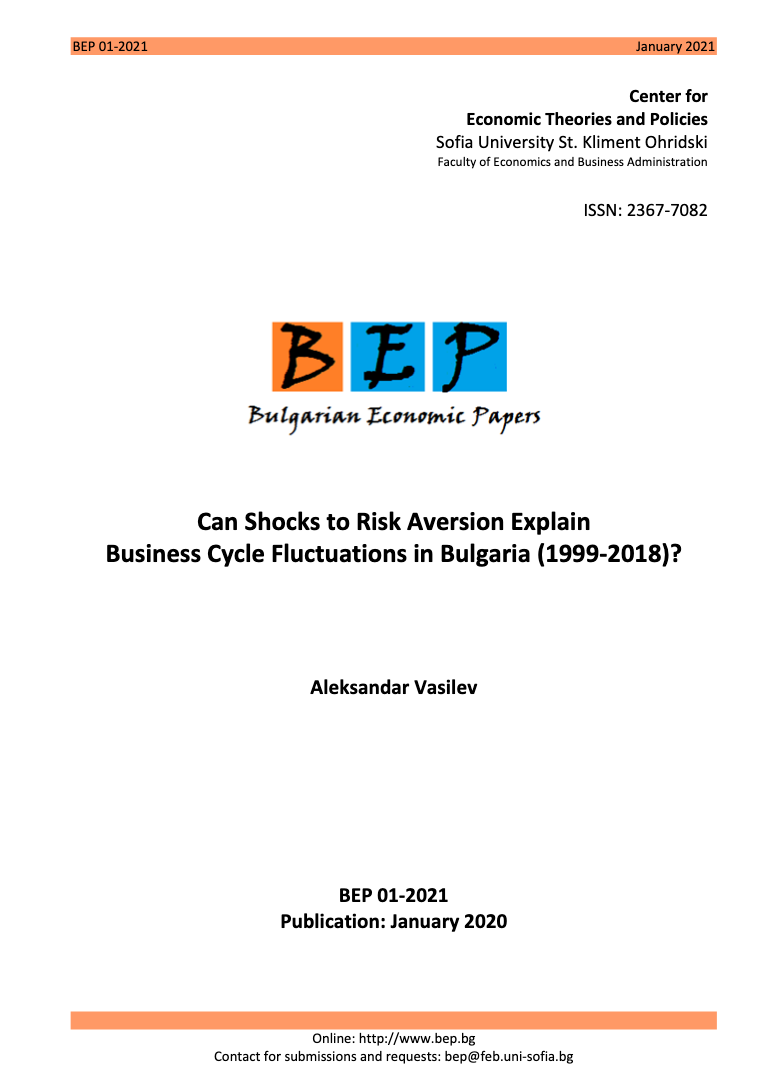Can Shocks to Risk Aversion Explain Business Cycle Fluctuations in Bulgaria (1999-2018)?
Can Shocks to Risk Aversion Explain Business Cycle Fluctuations in Bulgaria (1999-2018)?
Author(s): Aleksandar VasilevSubject(s): Economy, National Economy, Business Economy / Management
Published by: Софийски университет »Св. Климент Охридски«
Keywords: business cycles; stochastic risk aversion; Bulgaria
Summary/Abstract: Stochastic risk aversion is introduced into a real-business-cycle setup augmented with a detailed government sector. The model is calibrated to Bulgarian data for the period following the introduction of the currency board arrangement (1999-2018). The quantitative importance of the presence of shocks to risk aversion is investigated for the propagation of cyclical fluctuations in Bulgaria. In particular, allowing for a stochastic risk aversion in the setup improves the model fit vis-a-vis data by increases variability of employment and decreasing the variability of investment. However, those improvements are at the cost of decreasing the volatility of investment and wages.
Journal: Bulgarian Economic Papers
- Issue Year: 2021
- Issue No: 1
- Page Range: 2-20
- Page Count: 19
- Language: English

